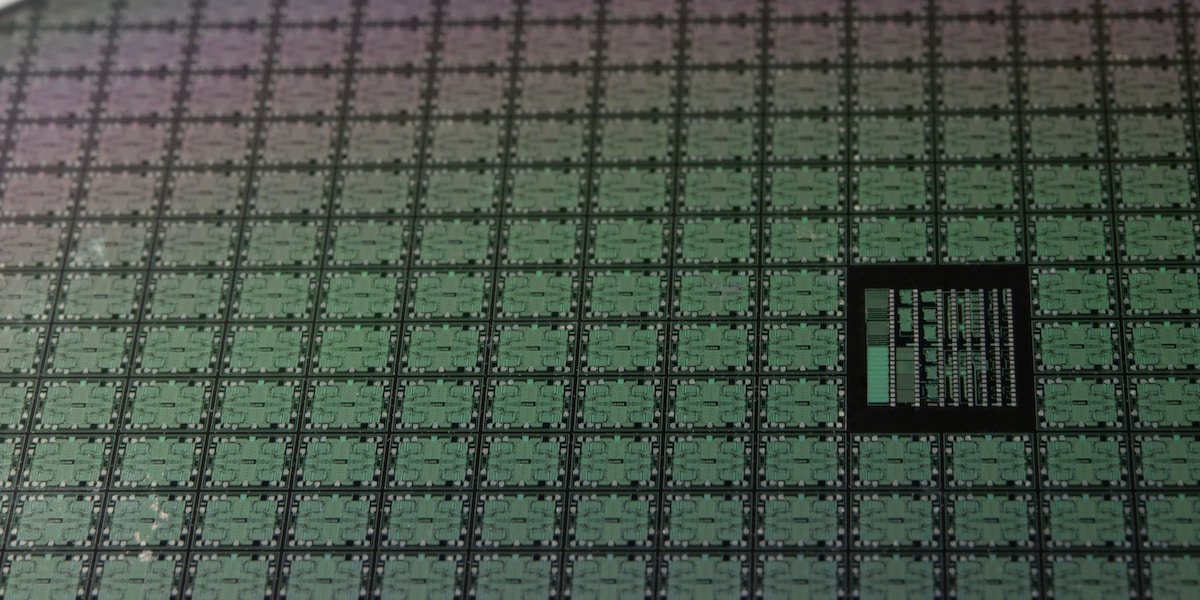The signing of the agreement between the German government and Intel, one of the largest microprocessor manufacturers in the world, to build a new semiconductor factory in Magdeburg, in eastern Germany, has reminded several insiders that the last two Italian governments had worked on an agreement with the American company to build a large factory in Italy as well. But unlike the German negotiation, nothing has been known about the Italian one for about a year. In recent months there have been no official updates regarding a goal that was almost certain and advertised with pride and satisfaction by the ministers who have followed one another in recent years.
In March 2022, Intel presented a plan for large investments in European countries – a total of 80 billion euros – to build or expand companies and strengthen the production chain of microchips, which are almost exclusively imported. It is a significant investment not only from an economic point of view. In fact, the European Commission has been working for some time to increase the internal production of microchips in order to reduce the continent’s dependence on Asian countries.
One of the most important European investment plans is the European Chips Act: it provides for total investments of 43 billion euros divided between public funding and private investments, as well as the establishment of a specific fund for investments and a relaxation of the rules for aid status by member countries. The goal of the plan is to reach 2030 with a 20 percent share of world microchip production (currently the production of microchips in the European Union is about 9 percent of the world).
In its original version, Intel’s plan envisaged an investment of 17 billion euros in Germany for a factory with about three thousand employees. Thanks to a new agreement reached on Monday, the total investment in Germany has grown to 30 billion euros: of these, 9.9 billion will be subsidies made available by the German government thanks to the money allocated by the European Chips Act.
Intel had also said it wanted to build the new research and development center in France, in the south-western area of Paris, making it the main European headquarters for the design of so-called supercomputers, computers that allow for the processing of enormous amounts of data.
An agreement was also found with Poland to build an assembly plant near the city of Wroclaw with an investment of 4.2 billion euros.
In Italy, on the other hand, the construction of a factory was planned to manage the so-called “backend” phase, one of the last before distribution: essentially, the chips would be tested in the Italian factory to check the characteristics requested by customers. According to forecasts, the factory would have ensured 1,500 permanent jobs with an overall supply chain of around 3,500 workers. Intel had planned to spend 4.5 billion euros to build the new company with part of the investment supported by the state, just like in Germany. The first steps of the negotiation that led to the announcement of the investment were followed by Vittorio Colao, minister of technological innovation in Mario Draghi’s government.
In 2022, the selection of possible areas to build the large factory began. The competition never ended: the two remaining municipalities are Vigasio, in Veneto, and an area between Volpiano and Settimo Torinese, in the Turin hinterland, in Piedmont. The two areas would have different advantages. Vigasio is in a strategic position, close to the Brenner motorway and the railway used to transport goods from Italy to Germany and vice versa. Between Volpiano and Settimo Torinese, on the other hand, there is a large area formerly occupied by Eni and Pirelli, close to Spea, a company that makes automatic machines for testing microchips for large groups such as Apple, Bosch and Marelli. With the arrival of Intel, one of the most important European poles of microchips would be born in Piedmont.
Since the appointment of the new government there have been no punctual updates regarding the negotiation. Last January the Corriere della Sera he interviewed Intel CEO Pat Gelsinger who expressed some doubts about the possibility of building the factory in Italy. «Italy is still in the game, but so are other candidate countries. We are trying to see where. We will decide within the year,” Gelsinger said.
The agreement reached with Poland has aroused suspicions and fears among the municipalities candidate to host the Italian factory because the amount of the investment is very similar to that announced for Italy and also the function would not be too different from that envisaged in the ‘Italian plant: Intel, it is the suspicion of the entities concerned, may have diverted Italian funds to Poland. The Minister of Enterprise and Made in Italy, Adolfo Urso, explained that the Polish plant does not exclude the Italian one: «The company has informed me that it is very keen on a presence in our country and that the Polish plant, by type and technology used, is completely different from that planned in Italy, which would involve the use of a new technology that is also different from that used in other European countries”. he said bear. This partial reassurance, however, was not followed by more concrete information on the negotiation with Intel.
